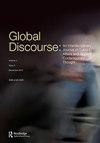Ideology as misrecognition
IF 1.4
Q2 INTERNATIONAL RELATIONS
引用次数: 0
Abstract
Theories of recognition often acknowledge that some forms of recognition can be ideological. Only recently have authors also begun to ask whether all ideological phenomena involve a more basic form of misrecognition of epistemic agents. I argue that an expressivist reconstruction of the Marxian theory of ideology can help us to understand what forms of misrecognition are involved in ideology. According to this understanding, ideological discourses reflect the rules of hierarchical social practices and impose limits on the capacity of subjects to challenge dominant conceptual distinctions. While rational epistemic subjects will tend to experience such limits as misrecognition, this does not require any negative interpersonal attitudes on the part of others. Therefore, at least some forms of ideology involve primarily structural, rather than interpersonal, misrecognition. I argue that ideologies that persist without involving widespread false beliefs can best be understood in this way and that neoliberalism is a paradigmatic example of such an ideology.作为错误认知的意识形态
关于承认的理论通常承认某些形式的承认可能是意识形态的。直到最近,才有学者开始追问,是否所有的意识形态现象都涉及认识论主体的一种更基本的误认形式。我认为,对马克思意识形态理论的表达主义重构可以帮助我们理解意识形态涉及哪些形式的误认。根据这种理解,意识形态话语反映了等级社会实践的规则,并对主体挑战主流概念区分的能力施加了限制。虽然理性的认识论主体会倾向于将这种限制体验为误认,但这并不需要他人采取任何消极的人际态度。因此,至少某些形式的意识形态主要涉及结构性误认,而非人际误认。我认为,意识形态如果不涉及广泛的错误信念而持续存在,就可以最好地用这种方式来理解,而新自由主义就是这种意识形态的典型例子。
本文章由计算机程序翻译,如有差异,请以英文原文为准。
求助全文
约1分钟内获得全文
求助全文
来源期刊

Global Discourse
Social Sciences-Political Science and International Relations
CiteScore
4.10
自引率
6.70%
发文量
64
期刊介绍:
Global Discourse is an interdisciplinary, problem-oriented journal of applied contemporary thought operating at the intersection of politics, international relations, sociology and social policy. The journal’s scope is broad, encouraging interrogation of current affairs with regard to core questions of distributive justice, wellbeing, cultural diversity, autonomy, sovereignty, security and recognition. All issues are themed and aimed at addressing pressing issues as they emerge.
 求助内容:
求助内容: 应助结果提醒方式:
应助结果提醒方式:


